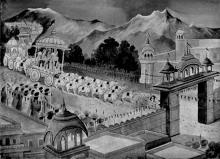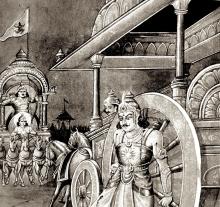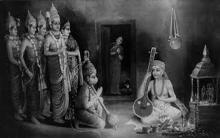The Antiquity of Karma-vidyā
“Arjuna, what I am explaining to you now is not something new and contemporary. It is something that I had explained to the sun named Vivasvān at the beginning of creation. He, in turn, taught this to Manu, the progenitor of the human race. Manu then gave the same upadeśa to Ikṣvāku, the foremost among kings. Thus, this knowledge of karma has been passed on through many generations. Earlier, many king-sages like Janaka and others followed the tenets of this knowledge and became accomplished."









